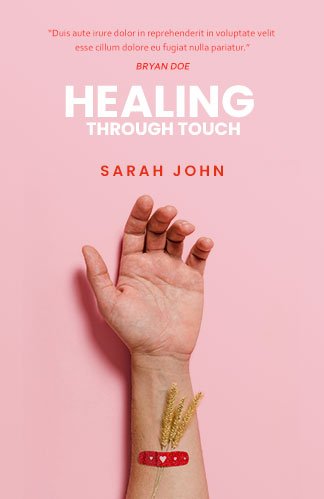Buy Magic Mushrooms Online UK Safe Shopping Guide 2026
💬 Join Telegram Group for ⭐ Reviews & 🔔 Updates 🟣 H1: Buy Magic Mushrooms

In the United Kingdom — from London to Edinburgh, from Cardiff to Belfast — addiction has become a major public health concern. When you ask “what’s the biggest addiction in the UK?” the answer is not straightforward, because multiple types of dependence compete for the title. However, data point clearly to one category standing out. Across England, Scotland, Wales and Northern Ireland, alcohol addiction remains the most widespread, followed by drug and behavioural addictions. According to the Mental Health Foundation, 16.6 % of adults in England report drinking at hazardous levels, while 1.2 % indicate probable alcohol dependence. Mental Health Foundation Meanwhile, tens of thousands of adults enter treatment each year for both alcohol and drug problems. GOV.UK+1
In this article, we explore which addiction truly dominates the UK, how it compares with Europe, Ireland and the USA, what driving factors are at play, and what people can do to intervene.
Before determining “the biggest addiction”, we need clarity on what “addiction” means. Broadly defined, addiction can refer to:
According to the UK Addiction Treatment Centres, addiction is “a state where the pull of a drug begins to override choice… the mind can start to cling to the relief, escape or rush that the drug brings.” UK Addiction Treatment Centres
In measuring “biggest addiction”, factors include: number of people affected, health/hospital admissions, social/economic cost.
In the UK context, while drug addiction is serious, alcohol addiction consistently leads in prevalence and impact.
Thus, when asked “what’s the biggest addiction in the UK?” the answer must be alcohol addiction.
| Addiction Type | Estimated Affected UK Adults | Major Consequences |
|---|---|---|
| Alcohol | ~600,000 dependents (England) GOV.UK | Health: liver disease, accidents; Social issues |
| Drugs | ~300,000 (for heroin/crack alone) GOV.UK | Overdose, crime, social exclusion |
| Behavioural (see next section) | Growing but less quantified | Financial/mental health risks |
In the UK, gambling addiction has received increasing attention: casinos, online betting, sports betting. It may not yet match alcohol in sheer numbers, but it is rapidly growing and carries severe financial/psychological harm.
Especially in cities like London, Dublin or Berlin, heavy internet and gaming use among youth is emerging as a behavioural addiction. While data is less robust, it’s a notable trend.
Although not yet the “biggest addiction” by prevalence, these dependencies should not be overlooked. They represent the next frontier as traditional substance addiction is challenged by technology-driven habits.
As covered, alcohol dependence leads. London and the North West have higher rates of alcohol-related issues. Delamere
European nations show different patterns. For example, in some Scandinavian countries drug use is higher, but alcohol remains a major burden. In Ireland, alcohol-based culture is also strong.
While alcohol is also the most common addiction in the USA, the prevalence of opioids and prescription drug misuse is comparatively higher there.
Comparative insight: The UK leads Europe in alcohol-related harms and is described by one source as the “addiction capital of Europe”. Delamere
In recent years in the UK and Europe, psychedelic-assisted therapy and microdosing have emerged as alternative research fields for addiction and mental health. For example, services offering microdosing of substances like LSD.
👉 Explore microdose options at MushroomFarm.uk – Shop Now
(Insert infographic image when publishing)
Title: “Alcohol Addiction in the UK – Key Facts”
Highlights:
In summary: What’s the biggest addiction in the UK? The evidence clearly points to alcohol addiction as the leading public-health addiction by prevalence, social impact and treatment burden. However, drug addiction and rising behavioural dependencies such as gambling and digital use cannot be ignored.
If you or someone you know is struggling with addiction, help is available. Explore safe support options, prevention tools, and tailored treatment plans.
👉 Explore microdosing and therapeutic alternatives – Shop Now
Let’s work together to reduce the toll of addiction across the UK, Europe, Ireland and the USA.
1. What is the number one addiction in the UK?
Alcohol addiction is the number one addiction in the UK by volume and public-health impact.
2. Is drug addiction bigger than alcohol addiction in the UK?
No — while drug addiction is serious, fewer people are affected than alcohol addiction and it carries less overall treatment burden.
3. Can behavioural addictions be bigger than substance addictions?
Behavioural addictions (like gambling or digital) are growing but currently still smaller in scale than alcohol addiction in the UK.
4. Why do so many people in the UK struggle with alcohol?
Factors include social drinking culture, accessibility, economic stress, mental health issues and insufficient preventative policy.
5. How can someone get help for addiction in the UK?
Contact NHS addiction services, local rehab centres, charities, or visit treatment websites for support, guidance and referral.
External Resources:
SEO Title: What’s the Biggest Addiction in the UK – Full Guide
Meta Description: What’s the biggest addiction in the UK? Explore alcohol, drug and behavioural addictions and learn how they compare across UK, Europe, and USA.
💬 Join Telegram Group for ⭐ Reviews & 🔔 Updates 🟣 H1: Buy Magic Mushrooms
💬 Join Telegram Group for ⭐ Reviews & 🔔 Updates 🟣 H1: Buy Magic Mushroom
💬 Join Telegram Group for ⭐ Reviews & 🔔 Updates 🟣 H1: Buy Magic Mushrooms
WhatsApp us